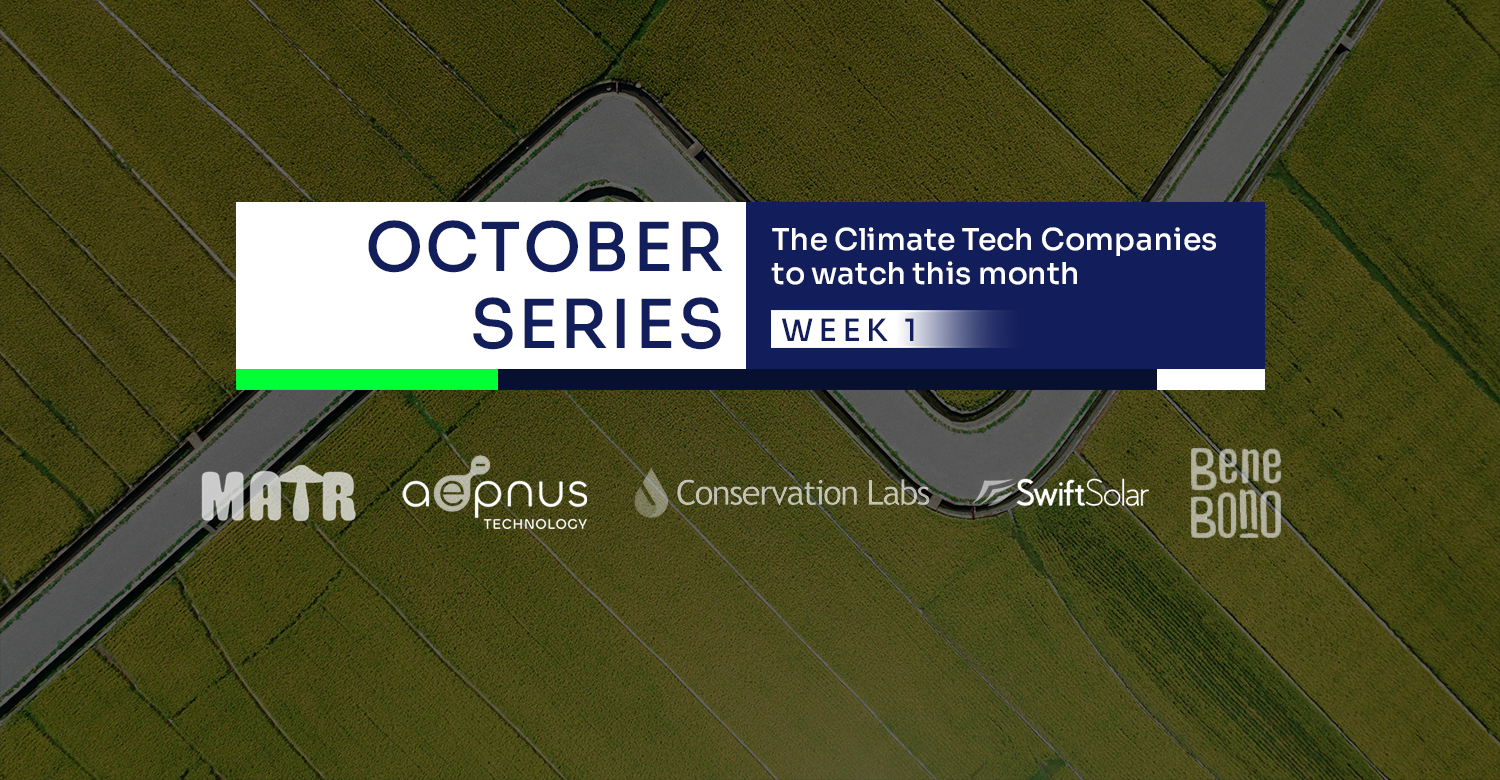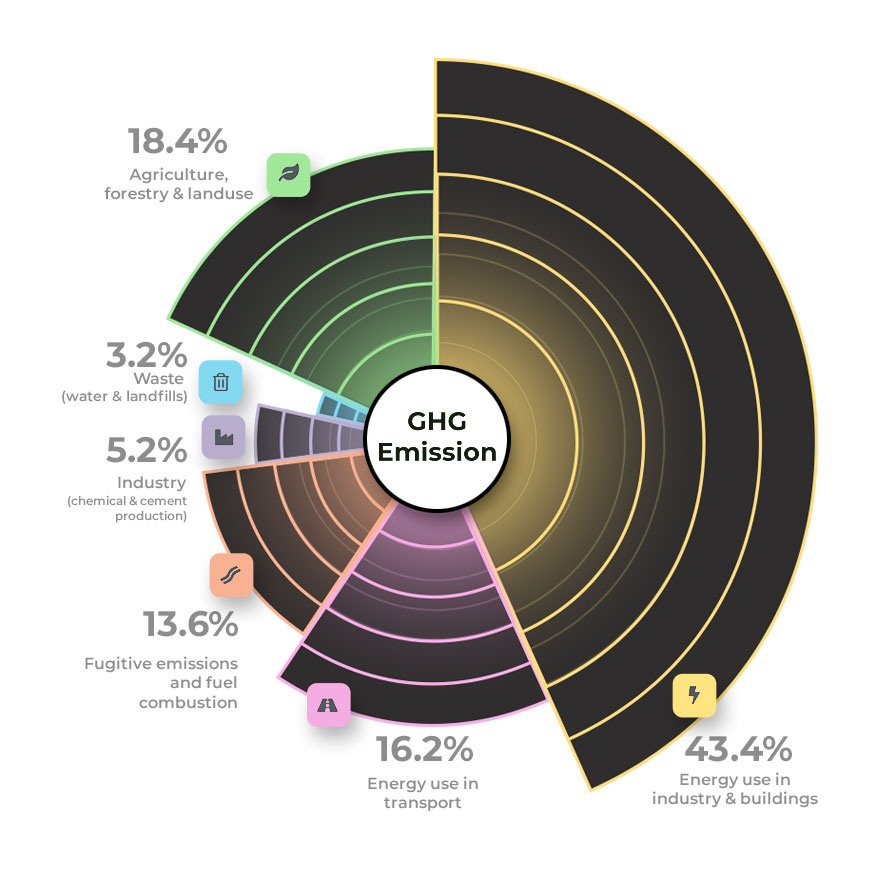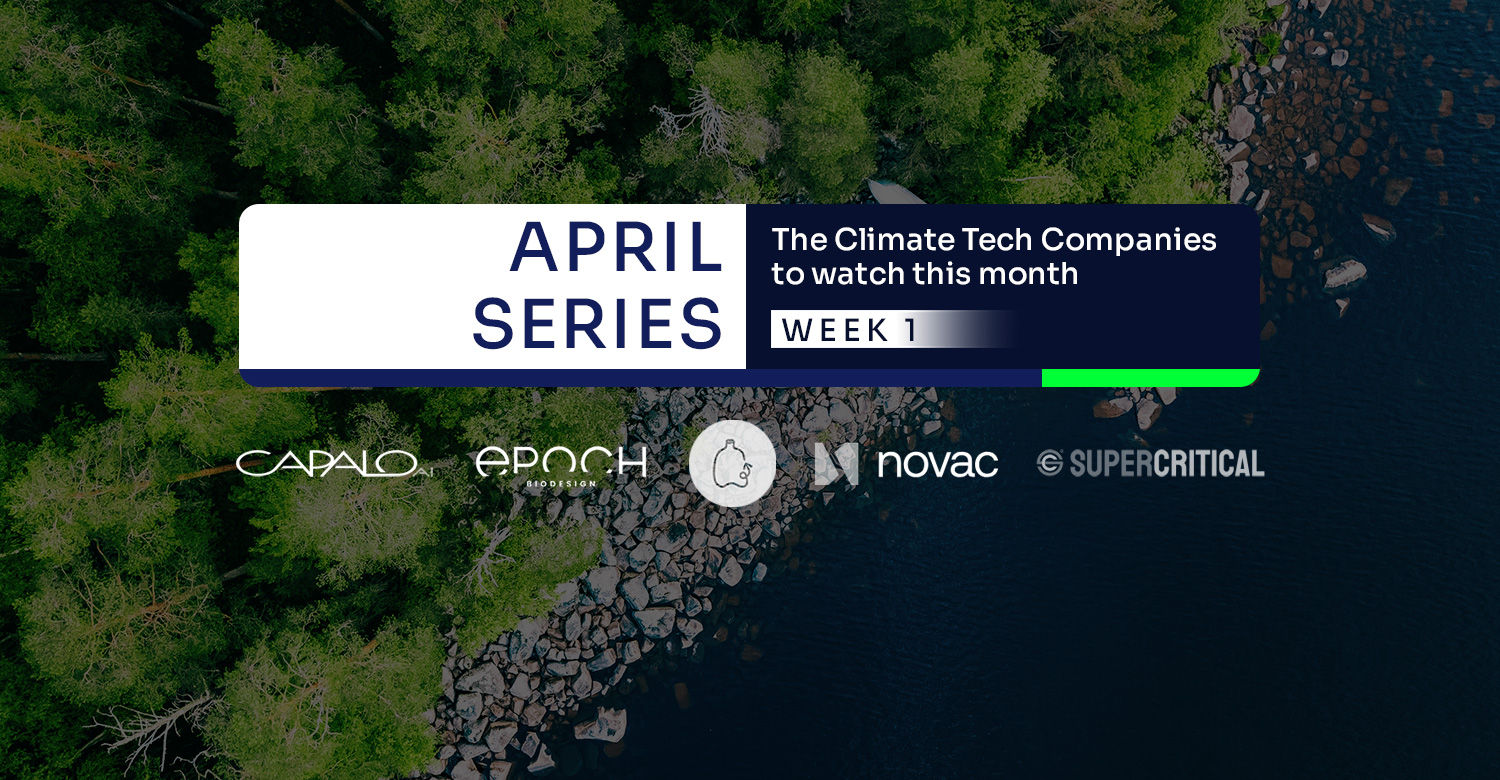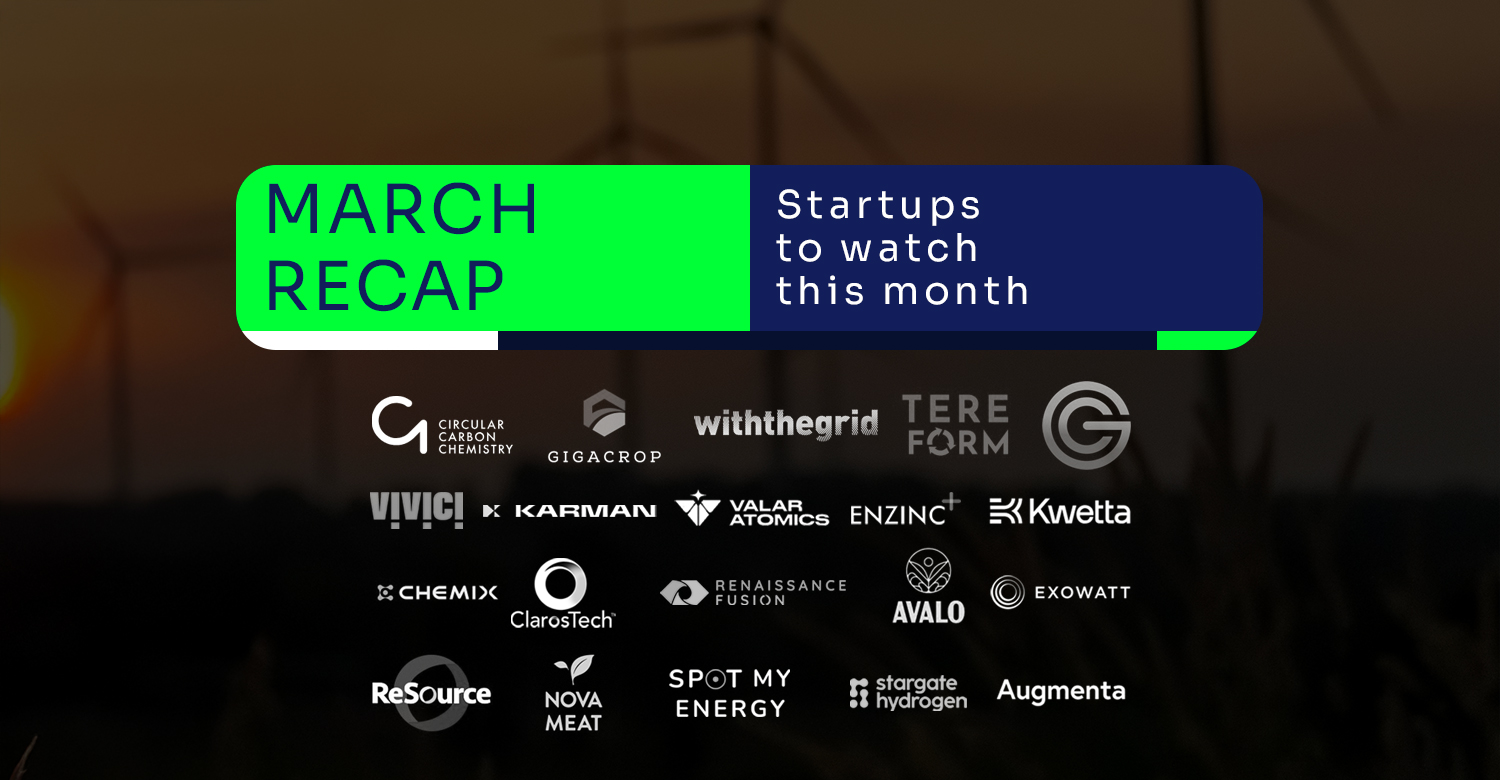October Week 1, 2024: In this weekly series, we highlight 5 climate tech startups to watch by featuring the incredible startups, companies, or projects that are leading the fight against the climate crisis.
Each month, we add these startups to our running list, which we have categorized based on fuel emission sector data from the most detailed, recent data SBC could identify from the World Resource Institute in 2016.
This initiative from Startup Basecamp aims to support founders by giving them access to networking and exposure opportunities that help them to scale and finance their climate tech solutions.
Do not hesitate to join our collective movement by requesting your membership.
With care,
Guillaume and the SBC TEAM
Agriculture, Forestry and Land Use
Founded: 2021- Nordhavn, DK
Leadership: Randi Wahlsten
Elevator Pitch: MATR Foods is revolutionizing plant-based ingredients by using traditional fungi fermentation on Nordic organic vegetables, legumes, and grains. This creates plant-based meat alternatives with deep umami flavor and a juicy, tender bite, without additives or heavy processing.
Problem they solve: MATR addresses the challenge of creating clean-label, plant-based meat alternatives that offer great taste, texture, and nutritional benefits, while using sustainable and local ingredients.
Impact: By utilizing local plant ingredients and sustainable fermentation, MATR reduces reliance on heavily processed meat alternatives and lowers the carbon footprint associated with traditional meat production.
Stage: Seed.
Interested in MATR Foods?
To learn more about their technology or get in touch, see here.
Industry (chemical and cement)
Founded: 2021 – Oakland, CA, USA
Founders: Lucas Hackl & Bilen Akuzum
Elevator Pitch: Aepnus is transforming the chemical manufacturing industry by utilizing ultra-efficient electrolysis technologies powered by renewable electricity. They decarbonize the production of essential chemicals, minerals, and metals, significantly reducing costs and emissions.
Problem they solve: Traditional chemical manufacturing processes are energy-intensive and reliant on fossil fuels, resulting in high emissions. Aepnus solves this by electrifying production processes, enabling lower costs and emissions.
Impact: Aepnus supports sustainable industrial production, facilitating the domestic supply of critical materials while reducing carbon footprints and advancing the clean energy transition.
Stage: Seed.
Interested in Apneus?
If you are interested in learning more, see here.
Waste (water & landfills)
Founded: 2016 – Pittsburg, PA, USA
Founder: Mark Kovscek
Elevator Pitch: Conservation Labs offers state-of-the-art water monitoring solutions that provide continuous surveillance, detect leaks in real-time, and send instant notifications for catastrophic events. Their easy-to-install, flexible system helps property owners save water and reduce costs by quickly identifying and addressing inefficiencies without the need for invasive pipe modifications.
Problem they solve: Water leaks and inefficient water usage are major challenges for property owners, leading to significant water waste and increased operational costs. Traditional monitoring methods are often slow, costly, and unreliable, making it difficult to promptly detect and address leaks. Conservation Labs solves this by providing real-time data and automated alerts, enabling swift action to prevent water loss and minimize financial and environmental impacts.
Impact: By detecting and preventing water leaks, Conservation Labs significantly conserves precious water resources, reducing the overall environmental footprint of properties. Their solutions promote sustainable water management practices, lower carbon emissions associated with water production and distribution, and contribute to the preservation of local ecosystems. This not only benefits the environment but also supports the long-term sustainability of communities.
Stage: Series A.
Want to learn more about Conservation Labs?
To learn more about their technology or get in touch see here.
Energy use in Industry and Buildings
Founded: 2017 – San Carlos, CA, USA
Founders: Maximilian Hoerantner, Joel Jean & Tomas Leijtens
Problem they solve: Current solar technology, while effective, is not sufficient to meet the growing energy demands and address climate change. Swift Solar addresses this by developing highly efficient, affordable, and scalable solar solutions.
Impact: Swift Solar’s innovations promise to dramatically increase solar adoption, reducing global reliance on fossil fuels and accelerating the transition to renewable energy. Their technology will play a critical role
Stage: Series A.
Interested in Swift Solar?
To learn more about this company, see here.
Agriculture, Forestry and Land Use
Founded: 2020 – Paris, FR
Founders: Grégoire Carlier, Claire Laurent & Sven Ripoche
Elevator Pitch: Bene Bono is revolutionizing grocery shopping by offering a sustainable and cost-effective solution. They rescue out-of-size and surplus products that would otherwise go to waste, offering them to consumers at a lower price. This model not only benefits customers but also supports local producers and reduces food waste.
Problem they solve: Bene Bono addresses the significant issue of food waste in the supply chain by redistributing products that don’t meet conventional retail standards, which often leads to millions of tons of food being wasted annually.
Impact: By rescuing surplus and out-of-size products, Bene Bono significantly reduces food waste, decreases the environmental impact of food production, and promotes more sustainable consumption habits. This contributes to lower carbon emissions and less strain on natural resources.
Stage: Series A.
Interested in Bene Bono?
If you are interested in learning more, see here.
Do you know of other startups we should include in our Startups to Watch Series? Submit to our list!
How do these startups fit in with all the others we have looked at?
Check out our running list of the 400+ climate tech startups to watch we have featured.
















